Rubens Ceiling at the Banqueting House
The sumptuous ceiling was one of the last things Charles I saw before his execution.
You’ll want to look up while exploring the Banqueting House, the only surviving structure of the old Whitehall Palace. A masterpiece painting by Flemish artist Sir Peter Paul Rubens stretches overhead. Plop yourself on one of the cushy beanbags that dot the floor so you can admire the artwork without straining your neck.
Charles I commissioned the ceiling to both honor his father, James I, and glorify the divine right of kings. The three segments depict The Union of the Crowns, The Apotheosis of James I, and The Peaceful Reign of James I. Rubens set to work on the mural back in his Antwerp studio, creating the enormous murals that were later sent to London.
Architect Inigo Jones specially designed the building’s beamed ceiling to serve as a custom frame for the murals. But when the artwork arrived, those responsible for installing it realized there’d been a major measuring gaffe. The scrolls’ dimensions didn’t match the ceiling’s, due to the fact England and Belgium used a different standard length for a foot. Thankfully, with a bit of trimming and tweaking, the murals were able to be installed on the ceiling, where Charles could gaze upon them from their throne.
In a cruel twist of fate, the extravagant work was one of the last things Charles saw before his death. After losing the Civil War, on January 30, 1649, the king walked beneath this ceiling one last time, exited from a nearby window (which no longer exists), and emerged onto the scaffold where he was executed.
Update March 2023: Banqueting House has now reopened. Book through the Historic Royal Palaces website.
Know Before You Go
The Banqueting House is open daily from 10 a.m. to 5 p.m. An adult ticket costs £5.50.
Community Contributors
Added by
Edited by
Plan Your Trip
The Atlas Obscura Podcast is Back!





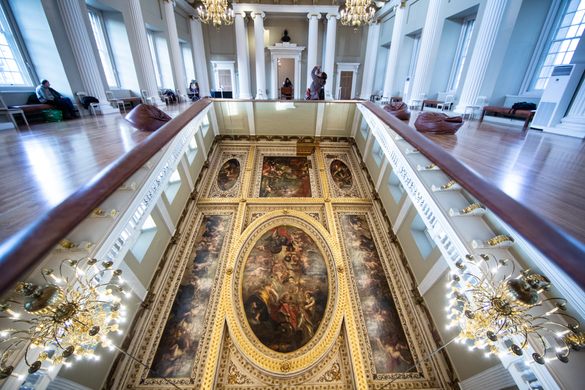
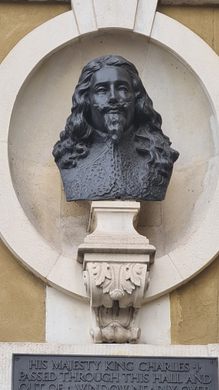

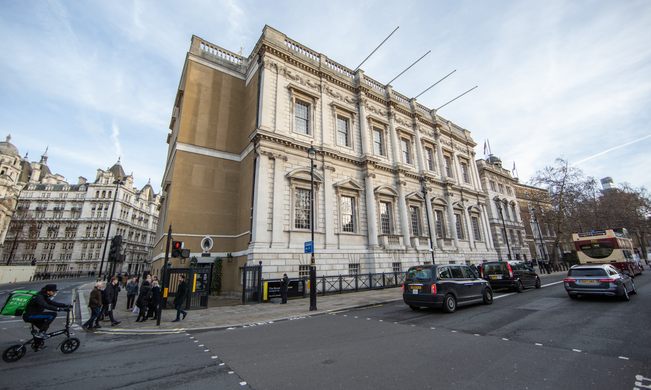




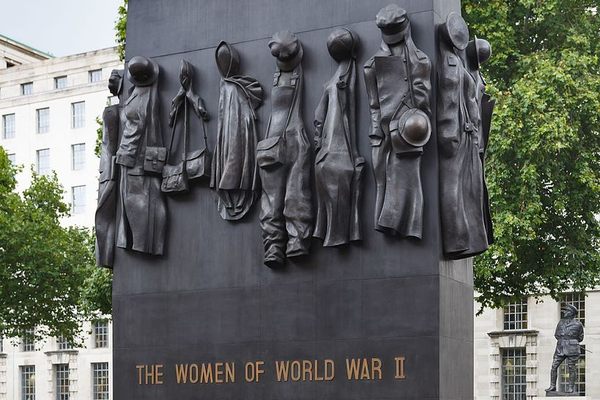





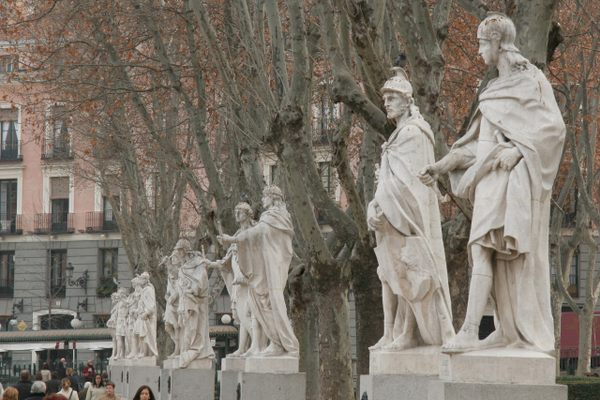
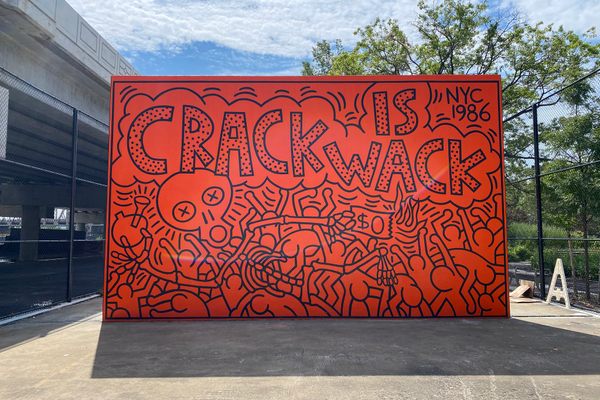

Follow us on Twitter to get the latest on the world's hidden wonders.
Like us on Facebook to get the latest on the world's hidden wonders.
Follow us on Twitter Like us on Facebook